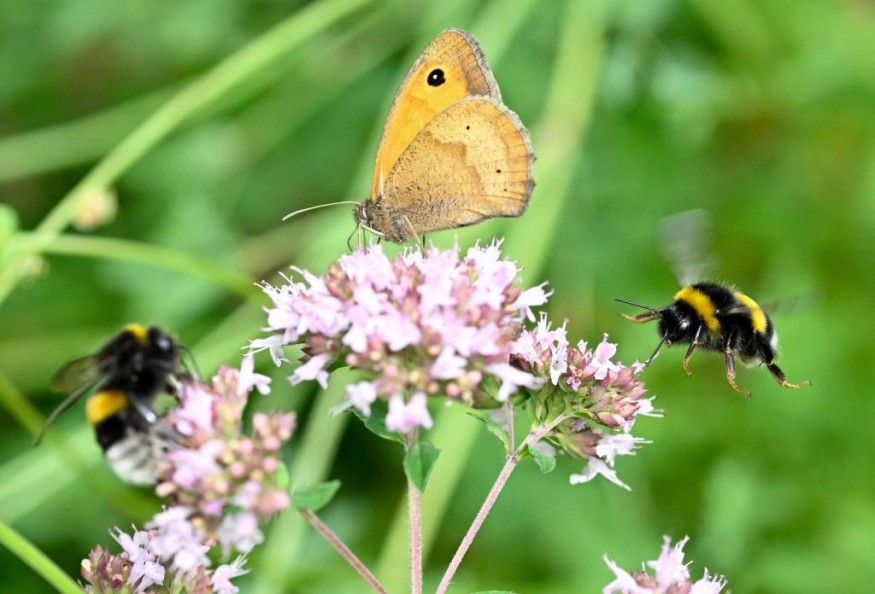The latest report discovered that bumblebees managed to show resistance against common pesticides, indicating their resilience to chemical stressors. The researchers studied the species' flight and learning activity.
Due to the widespread use of pesticides and chemicals, it can likely have alarming impacts on many species. Recent reports indicate that bumblebees are crucial for pollination and beneficial for animals and plants. They help with crops and flowers on many continents, except in Antarctica.
Additionally, bumblebees are considered a great pollinator due to the species' adaptability to changing conditions. They are considered frequent visitors to flowers for their survival. Unlike other pollinators, bumblebees are not picky when it comes to flowers.
As a result, studying the species' status is crucial for food security amidst the threats of chemicals or pesticides in farming and gardens.
Bumblebees and Resistance to Common Pesticides

Researchers from the Julius-Maximilians-Universität Würzburg (JMU) studied the effects of common pesticides on bumblebees in cooperation with the University of Bayreuth. The study exposed the bumblebees to a combination of pesticides:
- fungicides
- insecticides
The research findings were published in the Environment International journal, studying pesticide mixtures and potential interaction effects on bumblebees. When exposed to said pesticides, the researchers discovered that they had no negative effects on the flight and learning activities of bumblebees, showing the remarkable resilience of species.
"In nature, bees are not only exposed to individual stressors but usually encounter a variety of factors that can have negative effects on pollinators. The use of pesticides is one of the main causes of insect decline," Ricarda Scheiner, the study's lead author, said, as quoted in a report. Scheiner is also from the Neuroethology of Arthropods at the Department of Zoology.
The findings will provide new insights into the impacts of pesticides on the bumblebees' behavior, including the alarming effects on pollination. To better investigate the impacts, the researchers used modern RFID technology to observe the flight activity of said species, particularly the pesticide effects.
Amazingly, bumblebees' social lifestyle in colonies helps them survive toxic effects, ensuring that weak bumblebees can survive pesticides.
Conservation and Protection of Bumblebees
Understanding the resilience of bumblebees can potentially contribute to conservation efforts, protecting the bees from pesticide threats. Studying the resilience of species can provide new insights into the effective management or monitoring of bee populations.
Additionally, limiting pesticide use for crops and gardens can help bees, most are vulnerable to chemicals. Despite their small appearance, bees play a crucial role in the environment and in maintaining food security globally.
Related Article : Rusty-Patched Bumblebee: Scientists Race to Save Endangered Bee Species as Population Continues to Plummet
For more similar, don't forget to follow Nature World News
© 2025 NatureWorldNews.com All rights reserved. Do not reproduce without permission.





